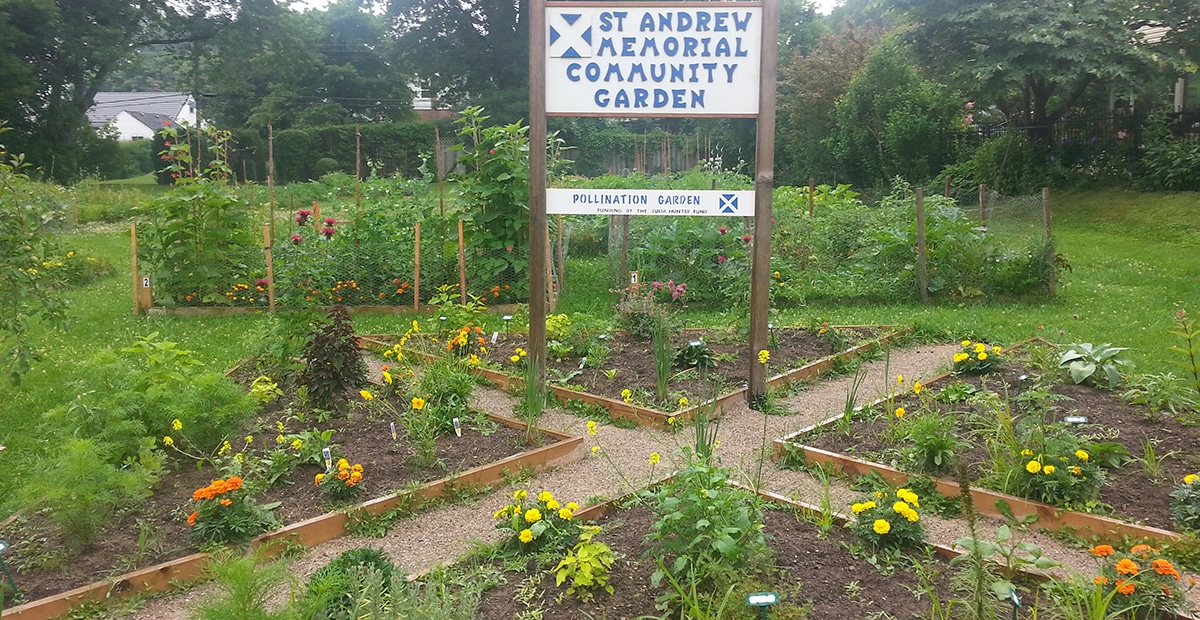Doing their part to restore balance to the local ecosystem, Anglican churches throughout the Diocese of Huron have planted pollination gardens to feed area bees as part of the Garden4Bees project.
The area in recent years has seen a noticeable decrease in the number of pollinating insects, a problem exacerbated by the use of insecticides. The diminished bee population threatens the local food chain, as farmers rely on the insects to help pollinate their crops.
The EnviroAction Committee, a grassroots organization that has been active in the diocese for nearly a decade, supported the Garden4Bees project last spring. Member Murray Hunter developed the pilot project to study which plants on bee lists were most effective, easy to grow, non-invasive, and drought-resistant.
“We decided to work with groups that had their own land and their own volunteers,” Hunter said.
“Churches seemed an obvious option, so we contacted Anglican churches in Huron Diocese.”
With funding from the Julia Hunter Fund at the London Community Foundation—and the added incentive of a cash prize to offset costs—Garden4Bees challenged churches to plant a pollination garden or add flowers to existing gardens to encourage bees and butterflies to feed and pollinate.
Ten churches participated in the project. Among them was St. James Anglican Church in Cambridge, where parishioners designed a butterfly-shaped garden that wowed judges and earned the church a $500 bursary prize.
“We were calling it a butterfly garden, and I guess the image of the butterfly just caught one of the participants’ imagination,” Canon Linda Nixon, rector at St. James, recalled.
“She drew up the plans for a butterfly-shaped garden and everybody loved it, so we went with it.”
Nixon led a team of volunteers that planted the garden over multiple weeks. A celebration ensued when it reached full bloom, with Bishop Robert F. Bennett blessing the garden and an area beekeeper discussing the plight of the bees with parishioners.
The visual appeal of the pollination garden has enhanced the landscape and attracted the attention of the local community members—often leading to in-depth conversations about ecology—while still serving its primary purpose.
“It certainly has attracted more types of flying insects than I’ve ever seen before,” Nixon said. “So it’s working, as far as being an attraction for bees.”
Noting that St. James is located on the edge of town near a large cornfield, she added, “We are constantly reminded about just where our food comes from…The pollinators are so vital to everything that the farmers are trying to grow that we need to be reminded of that.”
Another church that participated in the Garden4Bees project was St. Andrew Memorial Anglican Church in London, which grew the pollination garden as an adjunct to its existing vegetable garden that helps feed neighbourhood residents and supply the local food bank.
Interested in keeping up-to-date on news, opinion, events and resources from the Anglican Church of Canada? Sign up for our email alerts .

